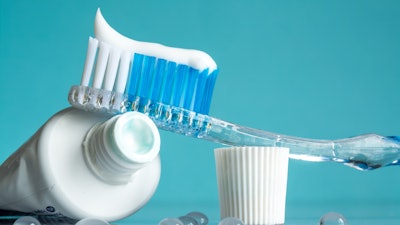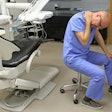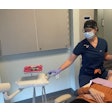
A naturally occurring molecule may be the key to reducing plaque and the incidence of dental cavities, according to research recently published in Antibiotics.
A collaborative team led by scientists at Ben-Gurion University of the Negev in Israel, Sichuan University in China, and the National University of Singapore reported that 3,3′-Diindolylmethane (DIM), a naturally occurring molecule, also known as bisindole, reduced biofilms that produce plaque and cavities by 90%. They also asserted that the molecule has anticarcinogenic properties (Antibiotics, June 6, 2023, Vol. 12:6, 1017).
According to the researchers, bisindole inhibits the growth of biofilms created by Streptococcus mutans, bacteria that grows in the moist and sugary atmosphere of the mouth after food has been ingested. The team also noted that the molecule has low toxicity, meaning it could be added safely to toothpastes and mouthwashes to improve oral hygiene.
The research was supported by the International Research and Development Program of Sichuan and a SMART innovation grant from Singapore.



















